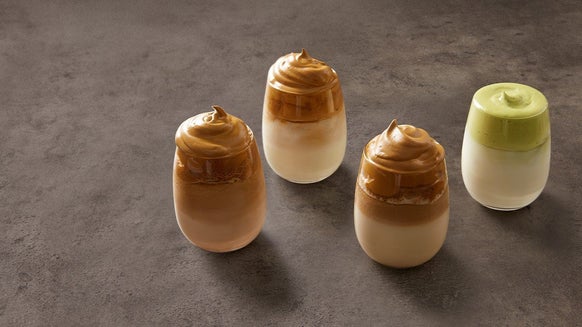5 Amazing Health Benefits of Psyllium Husk

Whilst psyllium husk is not an obvious supplement to support your health and performance goals, this soluble fibre packs an array of health benefits which are likely to surprise you regardless of your goals. Whether you’re looking to shred body fat, reverse metabolic disease or simply just improve your overall health, our 5-point guide to psyllium husk powder has you covered.
In this article, you'll find:

What is psyllium husk?
Psyllium husks are a form of fibre that comes from the husks of psyllium seeds of the Asian Plantago plant genus. The husks can be ground into a powder and provide a rich source of soluble fibre. Within the digestive system, soluble fibre absorbs water to help slow down digestion and the absorption of various nutrients contained within your food.
Whilst psyllium is clinically used as a laxative, it also provides many other health benefits which include both short- and long-term glucose control, weight loss, improvements in cardiovascular health and reductions in gastrointestinal issues such as IBS and constipation. Furthermore, psyllium is gluten-free making it suitable for those with coeliac disease.
Psyllium husk benefits
Controlling blood sugar levels is essential for good health as spiralling blood sugar levels are a warning sign for type II diabetes and other metabolic disorders such as high blood pressure and coronary heart disease. Adding psyllium husk to the diet has been shown to control spikes in blood sugars following a meal by reducing the rate of carbohydrate that’s absorbed.1
Not only does this help reduce the common energy crash following a meal but can also benefit those with type II diabetes. In addition, psyllium husk also helps to improve long-term glucose control and can, therefore, may help to reduce the risk of developing type II diabetes and other characteristics of metabolic syndrome.2
The gel-like fibre created when psyllium absorbs water may also play an important role in lowering our “bad” LDL cholesterol without having any effect on our ”good” HDL cholesterol via a similar mechanism to that of cholesterol-lowering drugs.3 This mechanism involves psyllium binding to bile acids in the gut and preventing their reabsorption. This has important implications for our health as studies have suggested that high LDL cholesterol is associated with various cardiovascular diseases such as atherosclerosis, blood clots and heart attacks.4
Feelings of hunger after meals are all too common when dieting and can completely ruin a well-structured programme in an instant. Whilst a sustained negative energy balance (sustained periods of time eating less calories than that used by the body) is fundamental for weight loss, the high fibre content of the psyllium husk can be a great tool to have in your weight-loss toolbox as its addition has been demonstrated to help slow the digestion of food within the stomach and increase feelings of fullness following a meal.5
With this in mind, studies6,7 have demonstrated significant weight loss with the addition of psyllium husk to the diet. Whilst this is impressive in itself, these studies also demonstrate sustained, progressive weight loss over time and no weight re-gain during the latter months of the programme.
Each teaspoon of psyllium husk contains a staggering 5g of fibre, which is around 15% of your daily fibre requirements and the equivalent of 200g steamed broccoli. Given that the average fibre intake within the UK is 10-15g lower than recommended values8 (Institute of Medicine recommends 14g per 1000 kcal), especially for those consuming low-carbohydrate diets, it is important to keep on top of daily fibre intake.
Given that low fibre diets appear to be a risk factor for colon cancer, cardiovascular disease and a range of other gastrointestinal issues it is clear that this issue must be addressed. Whilst these benefits can be achieved through a range of whole food sources, the addition of 1-2 teaspoons of psyllium husk each day can help to provide a quick and efficient fix to fibre deficiencies within our diet.9
Healthy bowel function is essential for optimal health and to avoid gastrointestinal issues such as constipation and subsequent haemorrhoids. Not only are these damaging to our health but can also impact on our performance or make exercise impossible altogether.
To this end, psyllium has been demonstrated to provide a clear laxative effect and help to improve the regularity of the bowel and is highly recommended for those suffering with chronic constipation.10
When compared with other dietary fibre sources, psyllium appears to be one of the most effective for bowel-related issues whilst also being associated with fewer side-effects such as bloating and gas.
Furthermore, psyllium supplementation appears highly effective for the alleviating symptoms of irritable bowel syndrome (IBS)11 and is also gluten-free so suitable for those with coeliac disease.

Psyllium husk dosage and side effects
Whilst there is no general consensus on the optimal dosage, the majority of beneficial effects are seen with taking 3.5 – 5g (mixed with 250-500 ml water) one to two times per day before meals. It’s advised that when consuming higher doses of psyllium to increase the amount of water it’s mixed with, whilst consumption of psyllium without water is not advised as this may result in sapping of saliva within the mouth and subsequent choking.
It’s advisable to start with a smaller amount of psyllium husk and begin with 3.5 g once per day for the first week and increase to twice per day in the second week. This is because too much too soon can result in feelings of bloating, discomfort and cramping.
Take home message
Psyllium husks provide a great source of soluble fibre and can provide an array of health benefits ranging from weight loss to improvements in cardiovascular and digestive health. So, regardless of your goal, psyllium husk can offer an inexpensive and efficient way to support a healthy diet and active lifestyle.

Mark is a current PhD researcher at the Research Institute for Sport & Exercise Science (Liverpool John Moores University) where his research focuses on the role of nutrition in skeletal muscle adaptation to training.
Mark also holds a Bachelor’s of Science in Sport & Exercise Science and a Master’s in Sport Nutrition and has published work in a range of scientific journals, professional magazines and has presented at both national and international conferences.
Alongside his research profile, Mark also practices as a performance nutritionist within professional football.Find out more about Mark’s experience here.







